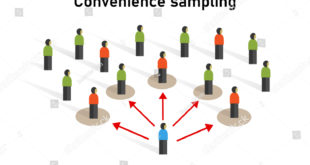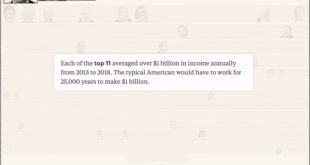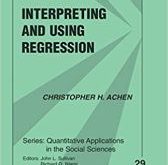from C. P. Chandrasekhar When the world’s financial leaders met mid-April at Washington for the annual spring meetings of the International Monetary Fund and the World Bank, the mood was one of gloom. The world economy is in disarray, with world leaders clueless as to where it is headed or what can be done to prevent a possible collapse. In the April 2022 edition of its World Economic Outlook, the IMF has slashed its 2022 GDP growth forecast of six months ago by 1.3 percentage points to...
Read More »Statistical inference and sampling assumptions
from Lars Syll Real probability samples have two great benefits: (i) they allow unbiased extrapolation from the sample; (ii) with data internal to the sample, it is possible to estimate how much results are likely to change if another sample is taken. These benefits, of course, have a price: drawing probability samples is hard work. An investigator who assumes that a convenience sample is like a random sample seeks to obtain the benefits without the costs—just on the basis of assumptions....
Read More »There is no political constituency for free trade, it’s just a term used to justify screwing workers
from Dean Baker It is amazing how frequently policy types talk about “free trade” as though it is actually a policy anyone is interested in promoting. The reality is that what passes for free trade is a policy of removing barriers to allow low cost manufactured goods to enter the United States without restrictions. This puts downward pressure on the pay of manufacturing workers. Since manufacturing had historically been a source of high paying jobs for workers without college degrees (it...
Read More »On mathematics and economics
from Lars Syll Studying mathematics and logic is interesting and fun. It sharpens the mind. But economics is not pure mathematics or logic. It’s about society. The real world. Forgetting that, economics becomes nothing but an irrelevant and uninteresting ‘Glasperlenspiel.’ Or as Knut Wicksell put it already a century ago: One must, of course, beware of expecting from this method more than it can give. Out of the crucible of calculation comes not an atom more truth than was put in. The...
Read More »Two routes to lower inflation
from Dean Baker Inflation has stayed higher longer than I expected. I got that one wrong. I am happy to acknowledge my mistake, but I also want to know the reason why. This is not a question of finding excuses, I want to know why the economy is acting differently than I thought it would. The most obvious reason is the supply chain disruptions that led to the original jump in prices have lasted longer and been more far-reaching than I expected. Part of this is due to the persistence...
Read More »Oligarchs—American style
from David Ruccio There’s been a lot of talk about oligarchs these past couple of months. Russian oligarchs, that is—the billionaires who have accumulated vast amounts of wealth, including large stakes in Russian industries, mines, and banks, as well as superyachts, private jets, investment accounts, and real estate in the West. We’ve even learned their names: Vladimir Potanin, Leonid Mikhelson, Alexey Mordashov, and so on.* They’re a pretty easy target, given Russia’s savage war on...
Read More »Things to consider when reading Mankiw 9th ed. Chapter 1: Ten Principles of Economics
from Rod Hill and the WEA Textbook Commentaries Project The definition of economics. Mankiw begins by defining economics: “Economics is the study of how society manages its scarce resources. In most societies, resources are allocated … through the combined choices of millions of households and firms. Economists therefore study how people make decisions” about working, spending, saving and investing their savings. Economists “examine how the many buyers and sellers of a good together...
Read More »Significance testing and the real tasks of social science
from Lars Syll After having mastered all the technicalities of regression analysis and econometrics, students often feel as though they are masters of the universe. I usually cool them down with the required reading of Christopher Achen’s modern classic Interpreting and Using Regression. It usually gets them back on track again, and they understand that no increase in methodological sophistication … alter the fundamental nature of the subject. It remains a wondrous mixture of rigorous...
Read More »WEA Commentaries – volume 12, issue 1
download the whole issue What Caused Russia to Invade Ukraine?David Lane Economic Implications of MOOCs in Higher Education: An Indian perspective Binay Kumar Pathak An interview with Andrea Terzi on the current situation in the euro zone and Italy in particularMitja Stefancic Rethinking economics: an interview with Sam de Muijnck and Joris TielemanMitja Stefancic Please click here to support the World Economics Association
Read More »Weekend read – Making thoughts unthinkable – the soft power of economic theory
from WEA Pedagogy Blog The 1932 science fiction novel Brave New World portrays a dystopian future where history is rewritten and words are redefined in order to make undesirable ideas “unthinkable.”footnote 1 The book is often associated with George Orwell’s 1984, where those who do anything undesired by those in power are made into an “unperson,” with all evidence of their history destroyed. When anyone speaks the unthinkable, they are simply defined out of existence. More generally,...
Read More » Real-World Economics Review
Real-World Economics Review





